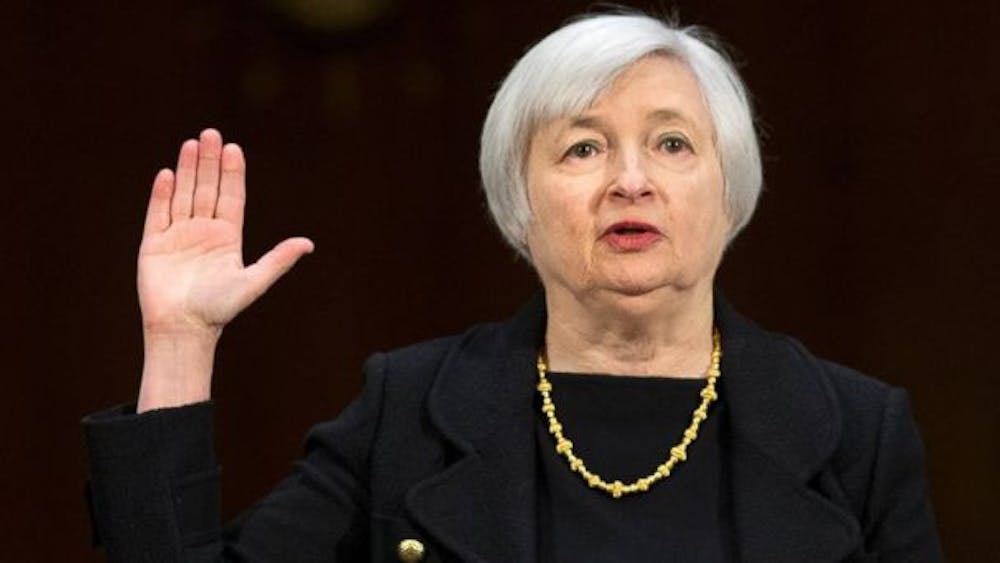By Roman Orsini
Staff Writer
In a monetary policy report to Congress on Thursday, Feb. 11, Federal Reserve Chair Janet Yellen imparted a more cautionary tone than she had in some of her previous meetings, outlining several factors opposed to continued economic growth.
Since the central bank raised interest rates in December 2015, its first such move since 2006, equity markets around the world have been rattled by losses. According to CNN, over a trillion dollars was lost in the U.S. stock market by Sunday, Jan. 17, due to a series of sell-offs that have persisted into February. Just as Yellen delivered her testimony, precipitous falls in stocks sent international investors scrambling to purchase gold bullion in record numbers, according to the Telegraph, as a bulwark against any global financial crisis.
The main sources of difficulty, Yellen cited, arise from weak foreign trade and volatile equity markets, stemming from China in particular. Yellen signaled that economic expansion in the United States may be subject to downturns internationally, given the increased interdependence of global financial markets and trade.
The slump in oil and commodity prices has depressed growth in many developing countries, lessening the demand for U.S. exports, according to Bloomberg. The rebounded strength of the dollar, relative to other currencies, has also made American goods less competitive for international trade, reducing net exports.
For these factors, the U.S. gross domestic product only grew at a rate of 0.75 percent last quarter. Financial markets are also experiencing greater dealings in higher-risk assets to investors demanding higher returns, given the uncertain environment.
CNBC reported that analysts from Citigroup, a large investment bank, warned that the global economy was on a death spiral due to a stronger dollar, reduced international trade and weaker growth in China and developing countries — many of the same causes Yellen described.

Indeed, a crisis of confidence within the banking sector has been a major impediment to a more boisterous, nonfinancial, economic growth in the years since the last crisis. It took almost a decade of loose monetary policy by the Federal Reserve and other central banks aimed at expanding credit to support greater investment and a ultimately recovery. While short-term rallies in stocks have, until recently, been a mainstay of the Fed’s credit expansion, little can be demonstrated in terms of real economic growth.
By nearly all measures, the years since the financial crisis represent the worst economic recovery after a recession, compared to the last eight recessions since 1960, according to CNBC. Domestic commercial banks have kept a combined two trillion dollars dormant by purchasing safe assets, such as U.S. bonds, instead of engaging in lending or investment, according to Bloomberg.
Foreign banks have also been less keen on lending, instead shoring up their reserves with government bonds. Governments are increasingly responding with negative interest rate bonds, which make the buyer pay a rate just to lend his money with the government. Central banks in Europe and Japan have begun to apply negative interest rates to their shorter-term bonds, the idea being to disincentivize banks from hoarding their cash by charging them instead of paying them interest.
Many perceive such a move as a sign of desperation by central bankers, who have used up their available tools to improve conditions. Yellen, however, when asked about the possibility of negative interest rates in the U.S., said, “it is something we will look at,” according to the New York Times.










